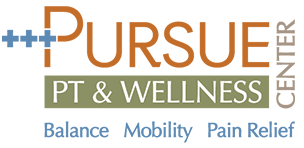Even mild concussions should not be taken lightly.
If you follow professional sports, you have probably seen players miss games because of concussions. Concussions are occurring at an alarming rate at all levels of sports. Concussions produce headaches, mood changes, loss of visual focus and dizziness. Physical therapy techniques have been developed to help those suffering with the lingering symptoms of a concussion.
What is a concussion?
A concussion is a type of traumatic brain injury that is caused by a blow to the head or body, a fall, or another injury that jars or shakes the brain inside the skull. Although there may be cuts or bruises on the head or face, there may be no other visible signs of a brain injury. Neurosurgeons and other brain-injury experts emphasize that although some concussions are less serious than others, there is no such thing as a "minor concussion."
You don't have to lose consciousness to have a concussion. Some people will have obvious symptoms of a concussion, such as loss of consciousness or loss of memory. But other people won't. With rest and proper treatment, most people fully recover from a concussion.
What causes a concussion?
Your brain is a soft organ that is surrounded by spinal fluid and protected by your hard skull. Normally, the fluid around your brain acts like a cushion that keeps your brain from banging into your skull. But if your head or your body is hit hard, your brain can crash into your skull and be injured.
There are many ways to get a concussion. Some common ways include fights, falls, playground injuries, car crashes and bike accidents. Concussions can also happen while participating in any sport or activity such as football, boxing, hockey, soccer, skiing or snowboarding.
What are the symptoms?
Symptoms of a concussion range from mild to severe and can last for hours, days, weeks, or even months. If you notice any symptoms of a concussion, contact your physician immediately.
Symptoms of a concussion fit into four main categories:
Thinking and remembering
- Not thinking clearly
- Feeling slowed down
- Not being able to concentrate
- Not being able to remember new information
Physical
- Headache
- Fuzzy or blurry vision
- Nausea and vomiting
- Dizziness
- Sensitivity to light or noise
- Balance problems
Psychological
- Fatigue and lethargy
- Emotional and mood changes
- Easily upset or angered
- Sad
- Nervous or anxious
Sleep
- Sleeping more than usual
- Sleeping less than usual
- Having a hard time falling asleep
Physical therapy program for concussions includes:
- Aerobic conditioning
- Balance training
- Postural education
- Gaze Stabilization and convergence exercises/training
- Core strengthening
- Manual therapy of injured neck soft tissues which often accompany concussion
- Patient education
- Comprehensive home exercise program
- Sports conditioning to help return to activities
For more information about concussions, visit WebMD:
Schedule
an Appointment
We see all new patients within 24 – 48 hours
Call 610-569-0004 or
